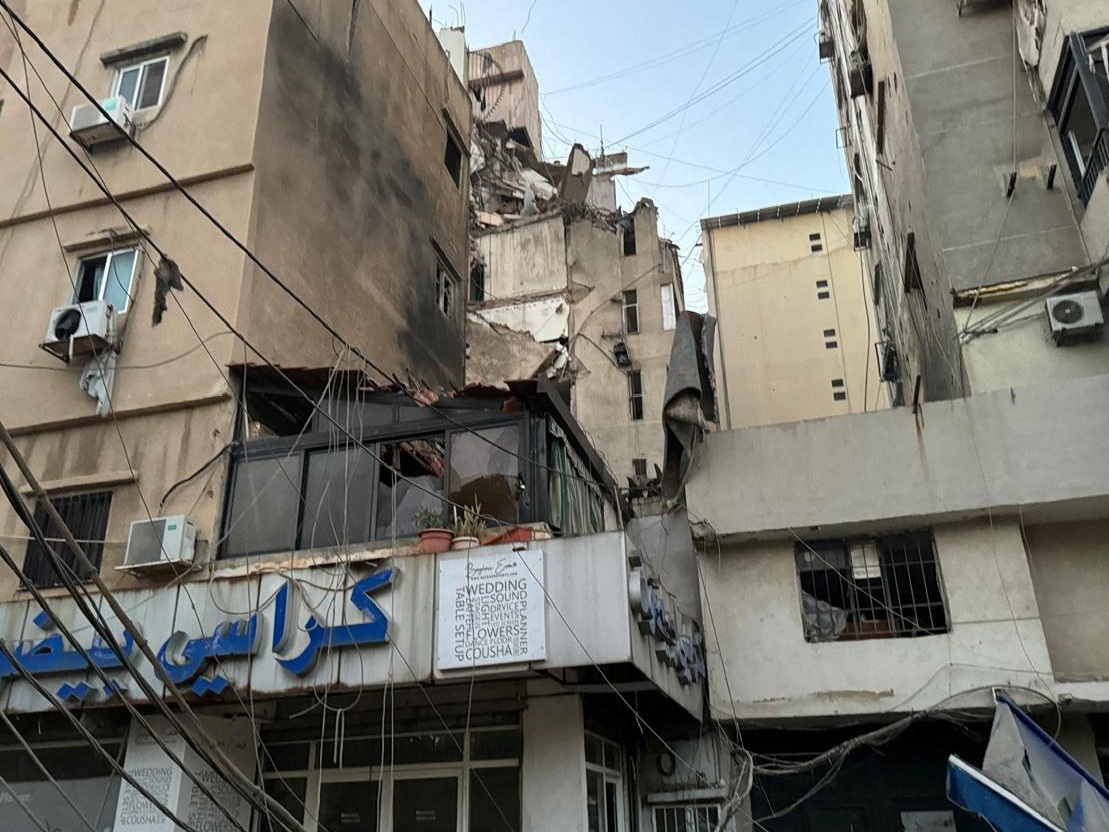
A view of buildings shows damage after what security sources said was a strike on Beirut's southern suburbs, on Tuesday.
Ahmad Al-Kerdi / Reuters
Updated July 30, 2024 at 14:39 PM ET
BEIRUT, Lebanon, and TEL AVIV, Israel — A large explosion ripped through the streets of southern Beirut on Tuesday evening. A short while later, Israel claimed responsibility for what it called a “targeted strike.”
The Israeli military said it targeted a Hezbollah commander whom it blamed for a rocket strike over the weekend that killed 12 children and left several people wounded in the Israeli-controlled Golan Heights. The Iran-backed militia group has denied that it was involved in that attack.
Close to the location of Tuesday’s strike in Beirut, police closed the roads off and an ambulance wailed its way to the area. People were shouting, “my family was inside, my family is inside!” as they ran toward the explosion.
Lebanon's state media reported that a building collapsed in the southern suburbs after “an enemy attack.”
Israel had made it clear that it would retaliate for Saturday's rocket attack it blamed on Hezbollah. "Hezbollah crossed the red line," Israeli Defense Minister Yoav Gallant wrote on X Tuesday.
When asked about the strike in a briefing with reporters, U.S. State Department spokesperson Vedant Patel said that the United States’ support for Israel was “ironclad” especially if it did defend itself against Iran-backed threats. He said those included threats from Hezbollah.
The strike came as the international community urged restraint from both sides, fearing that an escalation on the Israel-Lebanon border could spark an all-out war.
“We don’t want to see the war escalate,” White House national security spokesperson John Kirby told reporters on Monday. “We don’t want to see a second front opened up there in the north. What we want to do and what we’re still focused on is finding a diplomatic solution here to reduce the tensions.”